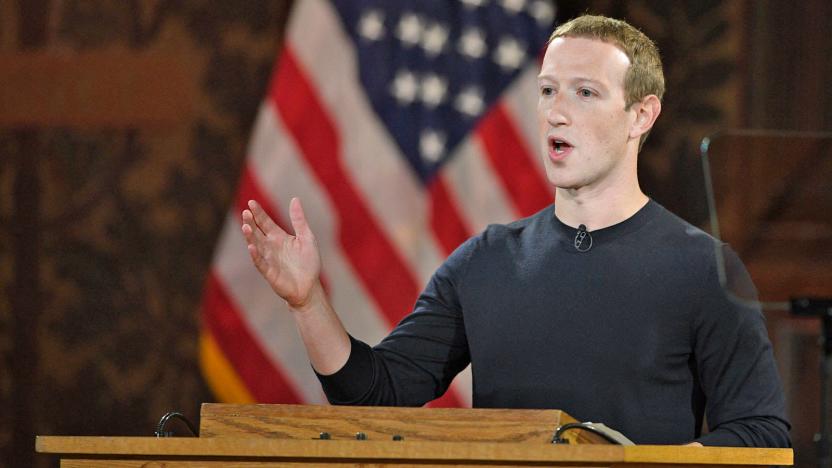freedom of expression
Latest

Former Google exec says he was pushed out for defending human rights
Google's former global head of international relations claims he was pushed out of the company for trying to protect free expression and privacy in China. In a letter shared today, Ross LaJeunesse says that, after 11 years of working to protect human rights in China, he was told there was no longer a job for him as a result of "reorganization." He says the company has strayed from its "don't be evil" motto, and rather than take a lesser role, he's leaving to run for a Senate seat in Maine.

Mark Zuckerberg defends free speech on Facebook
Facebook CEO Mark Zuckerberg took to the stage at Georgetown today to defend freedom of expression. Most recently, Facebook has been criticized for allowing politicians to post misleading ads. But Zuckerberg is calling for more free speech and cautioned against "potentially cracking down too much" on social networks.

Twitter to begin 'reactively' censoring tweets in specific countries, still no love for China
It's no secret that certain countries have different views over freedom of expression on the internet, but this hasn't stopped Twitter's attempt to keep its service running in as many places as possible. In its latest blog post, the microblogging service announced that it'll begin "to reactively withhold content from users in a specific country" when required, in order to keep said content available to all users elsewhere (as opposed to blocking it globally). The withheld tweets will be marked accordingly while their authors get notified with reasons where possible, and internet legal rights monitor Chilling Effects will also post the relevant take-down notices on a dedicated page.This may seem like some form of censorship taking over Twitter, but the company only mentioned those of "historical or cultural reasons" like the ban of pro-Nazi content in France and Germany; so it's not clear whether Twitter will also handle similarly with tweets that potentially lead to events such as the UK riots last year. Even though Twitter didn't elaborate further for Reuters, there is one reassuring line in the post: "Some [countries] differ so much from our ideas that we will not be able to exist there."One such country is most likely China, and back at AsiaD in October, Twitter CEO Jack Dorsey told us that there's simply no way for his company to work with the Chinese government (you can watch him answering us at 38:17 in the video -- courtesy of All Things D -- after the break): "The unfortunate fact is we're just not allowed to compete in this market, and that's not up to us to change. The person to ask is trade experts between both governments, but at the end of the day we can't compete. They (Chinese microblogging platforms) can compete in our markets, and we're certainly interested in what that means for us... We would love to have a strong Twitter in China, but we'd need to be allowed to do that."There are obviously many factors that add up to this sour relationship, but the contradiction between China's strict internet monitoring policy and Twitter's core values is most likely the biggest obstacle. And of course, the Chinese government would favor its home-grown tech properties, anyway. That said, several months ago, one of the country's largest microblogging services Sina Weibo was criticized by the authorities for not censoring fast enough, so it's obvious that it'd be even trickier to work with a foreign company that sees things differently. Things are unlikely to change any time soon, or ever, unless China relaxes its policy.

